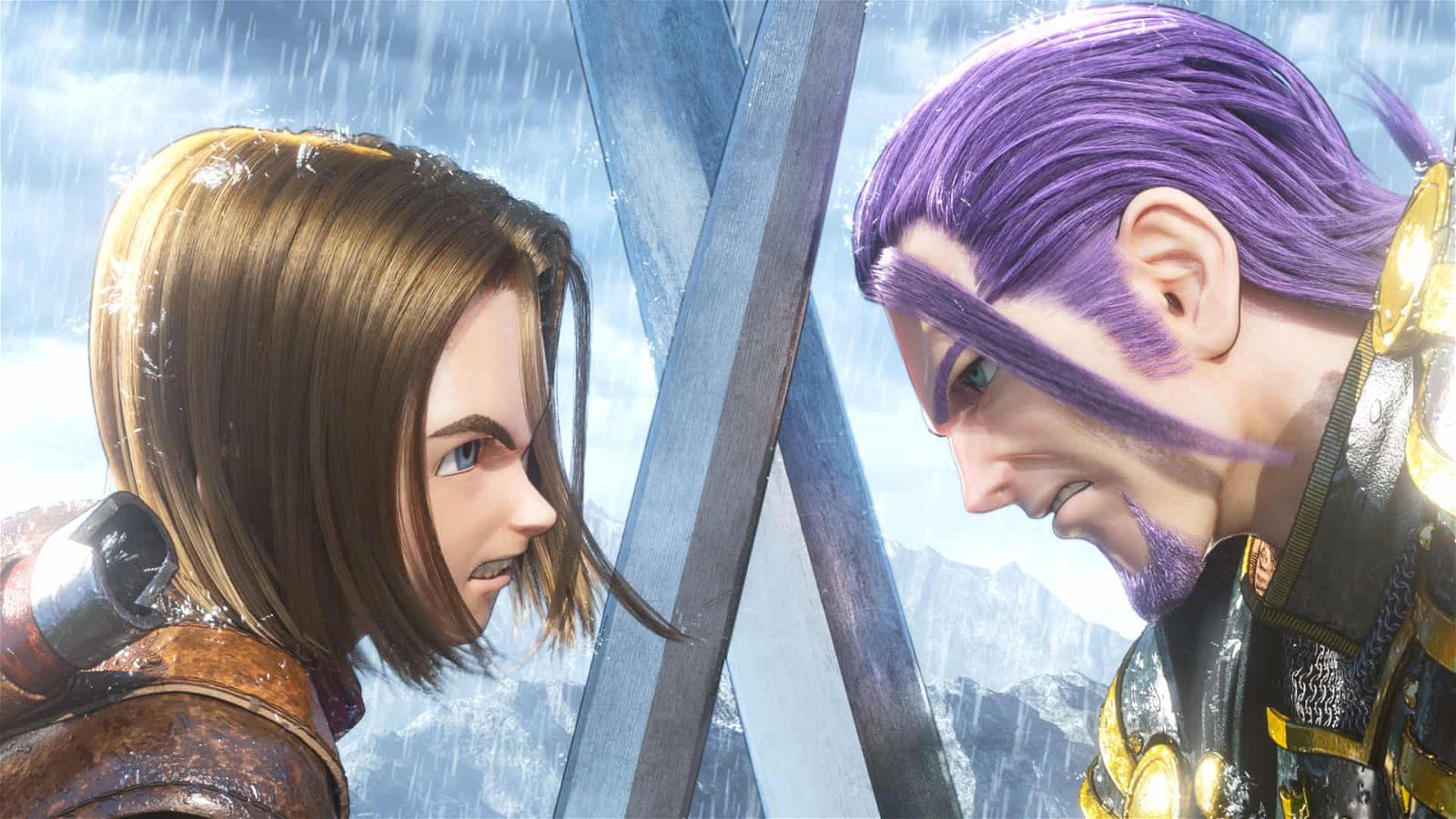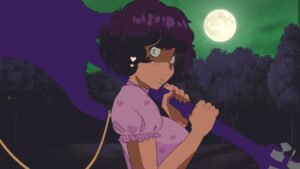A particular attribute of classically-styled Japanese role-playing games that has always resonated with my spirit is their unbridled enthusiasm for the spirit of adventure. This is embodied best in the feel-good narratives of games like Grandia and Skies of Arcadia, wherein plucky heroes and heroines embark on journeys to save the world and discover themselves along the way. The infectious optimism and raw humanity present in those sorts of tales sets my imagination ablaze.
Of course, this characteristic is not universally present, nor should it be; just as Western RPGs grow increasingly diverse beyond the ubiquitous Tolkien-esque sensibilities once synonymous with the subgenre, so too do Japanese RPGs have their own evolving stylistic conventions, most conspicuous in their shift towards modern-day settings. Yet one series weathers the storm of revolution and reinvention with one foot rooted firmly in the traditions of the past: Dragon Quest, the very foundation of the Japanese RPG as it exists today. Thirty-two years later, Dragon Quest XI: Echoes of an Elusive Age—burning brightly with that same spirit of adventure—hoists its banner into a new era of role-playing that, in many ways, seeks to eschew the very traditions it created.
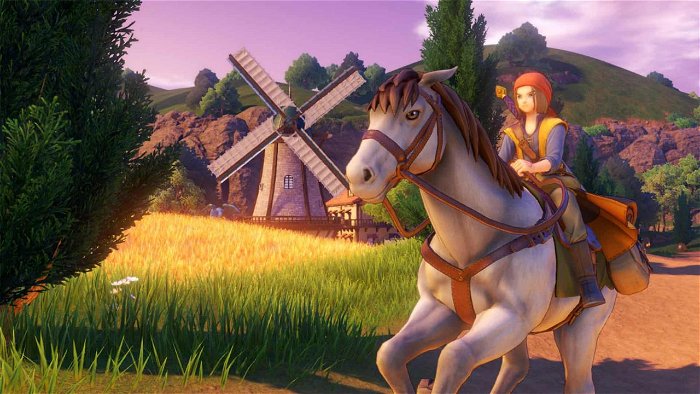
I herald its arrival with trumpeting adulation.
To immediately answer the most pressing question of many a prospective player: No, Dragon Quest XI does not reinvent the Japanese RPG genre, and thus it is unlikely to win the hearts of the text-averse or those abhorrent of turn-based combat. But for those who cut their teeth on Japan’s role-playing classics, Dragon Quest XI delivers virtually everything one could want from a modernized game in that mould—and more, as its 100-hour quest stretches at the seams beyond its apparent limits time and again. Its strength lies not in defying conventions, but in refining the concepts its predecessors pioneered to the absolute apex of what Dragon Quest can be—all while maintaining its singular identity. Other RPGs excel in their own areas; Dragon Quest XI excels at being Dragon Quest.
Dragon Quest XI is the story of the Luminary, a bright-eyed youth and the reincarnation of a legendary hero. His life, fraught with heartache and misery, is also a rousing tale of triumph over evils both big and small. Dragon Quest XI‘s enormously long runtime (rivalled only in recent memory by the similarly ambitious Persona 5) is the stage for both the Luminary’s journey to deliver the world of Erdrea from darkness and, in line with series tradition, numerous vignettes centred on supporting characters that play into the story at large.
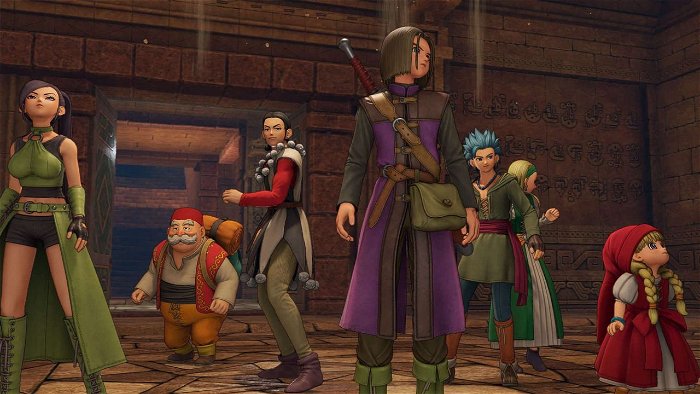
What Dragon Quest XI does better than, say, Dragon Quest VII (another adventure constructed mainly of vignettes) is tie its smaller character stories meaningfully into the main plot. The Dragon Quest XI ensemble is perhaps the most animated and likeable in series history, from its immensely charismatic core cast to the supplementary personages who embody a variety of cultural features and linguistic mannerisms. A penchant for clever wordplay has become an inseparable strand of Dragon Quest‘s DNA, and true to its legacy, XI is a master-class effort in localization. Every line of text positively drips with style and wit, from the punny names of equipment, skills, and monsters to the unique regional dialects and accents present in character dialogue. One town’s villagers speak entirely in perfect haiku. Elsewhere, a race of mermaids speaks in charming rhyme. The amount of effort it must have taken to ensure that all of this text met such exacting standards is nothing short of staggering, and the game is vastly better for it.
Dragon Quest XI‘s world is one where I am content to simply drink up words and explore every corner of its vibrant landscapes. Its verdant scenery is breathtaking, with a rich, almost exaggerated colour palette that enhances the natural beauty of the world. Dragon Quest‘s visual aesthetic is pleasantly cartoonish, unembellished in terms of character design but with meticulously detailed architecture and an abundance of warm, comfortable spaces. Many areas boast an impressive sense of verticality, with ladders, tightropes, and secret staircases that encourage thorough exploration. Every new town I encountered was an opportunity to spend an hour or more speaking to villagers and combing through their residences for books to read or treasure to despoil.
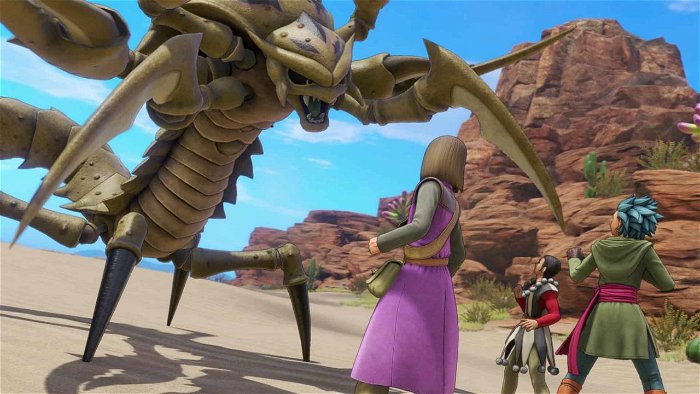
That exacting attention to detail—which, in case I haven’t made it abundantly clear, is a constant throughout the Dragon Quest XI experience—spills over into nearly every facet of the game, including battle. Characters’ weapons (and certain pieces of armour) are visually represented on their models, and each has unique animations for every circumstance, from the way they cast spells to the way they boogie when inflicted with a debuff that magically compels them to dance their turns away. Speaking of turns, the series’ signature turn-based combat is more or less unchanged from previous Dragon Quest titles, though it now features the option to manually move characters around the battlefield and control the camera at the player’s leisure. This is a purely cosmetic concession, as there is no strategic benefit to manipulating the battlefield as such. I preferred to let the game handle the camera and character movement on its own; I felt this made battles more visually appealing while allowing me to focus on strategy. Dragon Quest XI‘s major addition to battle is Pep, a heightened state that characters enter semi-randomly, raising their stats and enabling them to perform combination attacks with their teammates. Never before has Dragon Quest combat been so fun or flashy.
In the year since Dragon Quest XI released in Japan, the development team wisely spent time fine-tuning the game for English-speaking audiences. The fruit of their labour is sweet indeed—the game’s menus have been overhauled with more visual detail, a new dash button that moves the Luminary across Erdrea at twice the speed, a camera mode for taking screenshots (a huge gaming trend as of late), excellent English voicework where the Japanese version featured none whatsoever, and a suite of options for adjusting the game’s difficulty. This last bullet point, the so-called “Draconian Quest,” bodes especially well for Dragon Quest XI‘s legacy. Clearly inspired by the rise of metagaming and speedrunning, Draconian Quest is a built-in tool for elongating the life of Dragon Quest XI far beyond the confines of a traditional playthrough.
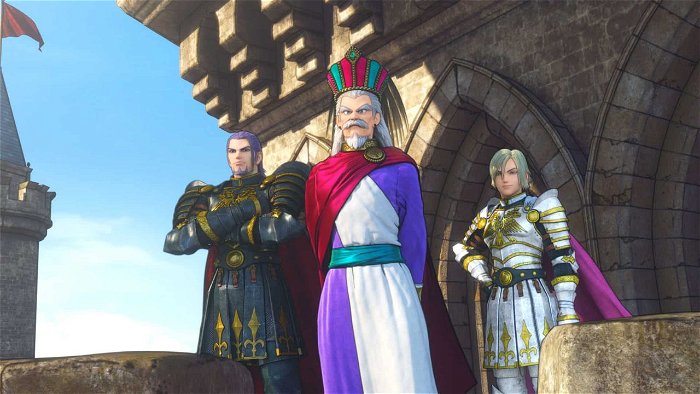
There are but two blemishes on the otherwise wonderful Dragon Quest XI experience. The first is its boring, boring, boring soundtrack. Koichi Sugiyama’s compositions are holding Dragon Quest back, full stop. His music is inextricably tied to the series’ legacy, but his sweeping, orchestral style—once fresh and whimsical—now feels stagnant, dated, and ill-fitting. I can hardly tell any Dragon Quest soundtrack from another, and XI is no different. The score is also entirely too brief, with only a handful of tracks that repeat, again and again, in every town and every field area, to maddening effect. More curious still is that the game employs a low-fidelity synthesized soundtrack when a fully-orchestrated version of the music exists in CD form. Dragon Quest VIII implemented this all the way back in 2005—why not XI? Sugiyama’s refusal to evolve as a musician (to say nothing of his notorious fussiness over the licensing of his music) is a shackle that binds Dragon Quest to this day. It’s time for someone new to step in.
My other criticism of Dragon Quest XI is less about this specific game and more about a set of values I’m tired of seeing reinforced. I’m just going to be blunt: Dragon Quest doesn’t handle gender very well. It never has. Yes, there have always been physically and mentally powerful women in Dragon Quest games, but without fail, there is a dichotomy between the way men and women function within the social context of Dragon Quest worlds. XI is no exception. Party member Jade is an accomplished martial artist who displays no flirtatious proclivities through her dialogue, but has an entire skill tree devoted to “sexy” attacks. The campy Sylvando, a male circus performer, has access to some of these same moves, but his versions are framed in a humorous way.
In nearly every town, there are tittering bunny girls who promise to show the protagonist a good time, who flirt and plead for the attention of male characters, and who make the screen fade to black while they provide “puff-puff” to soothe men’s souls. (“Puff-puff” has, throughout Dragon Quest‘s history, been a euphemism for a vaguely sexual act; it is worth noting when women perform “puff-puff,” it is sexually charged, but when men perform it, it is always humorous or outright damaging in some way.) In one instance, the protagonist is lured into a woman’s bedroom, blindfolded, and receives an unusual “puff-puff” that is, of course, revealed to have been provided by a male character, at which the player is supposed to be aghast. The implication that he was the victim of bait-and-switch sexual assault is tasteless at best. That Dragon Quest is still leaning on these kinds of tropes in 2018 is depressing. To its credit, there are some ways that Dragon Quest XI is progressive, particularly for a game within this series; Sylvando is clearly intended to be a queer man, and while he ends up being the butt of an occasional joke, his characterization is otherwise expertly handled. He’s fun, never leery, and characters throughout the world react positively to his exuberance. I’m taking the time to levy these criticisms against Dragon Quest XI‘s themes not because I want to nitpick, but because they sully what is otherwise an all-around excellent game.
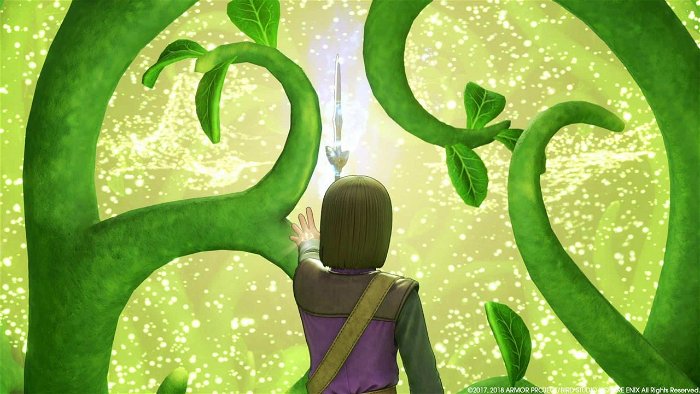
There is a vibrant, irrepressible charisma exuded by Dragon Quest XI that hearkens back to the RPGs of yore. It may be too lengthy, too wordy, or too traditional for some players’ tastes, but Dragon Quest has never been at the forefront of innovation—that’s what Final Fantasy is for. Dragon Quest XI is comfort food. It is a warm, familiar world that leverages its longstanding legacy with aplomb, exemplifying that all-too-elusive “spirit of adventure” I’m so hung up on. If nothing else, it is an exemplary Dragon Quest game.
